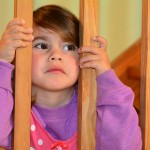
Before reviewing the content of this paper, I would like to praise the authors for writing one of the clearest, systematic and readable articles I have ever read; considering the complexity of the task they undertook, this is quite an achievement.
This paper sets out to address a gap in the review literature concerning 5-11 year olds and the causal effect of malleable parental styles on the occurrence of depression, anxiety and internalising problems.
In the introduction, they highlight the logic of looking at how parenting impacts on the emotional wellbeing of children, and make the clinical case for targeting the parenting factors that can be altered.
The authors discuss the existing literature on parenting interventions, suggesting that these interventions do not currently draw out the parental actions that influence anxiety and mood disorders in children or thoroughly consider the developmental age of the child. They see 5-11 as a crucial age range in terms of emotional development, and therefore see their work as clinically valuable.

Anxiety and mood disorders are very common, with lifetime prevalence rates of 18-38% in teenagers (Kessler et al, 2012)
Methods
The aim is therefore clear and the work warranted, but it is also incredibly broad, and the paper could be lost at this stage because both the independent (parenting factors) and dependent variables (depression, anxiety, internalising problems) can be defined and measured in many ways, which is indeed what the authors found in the papers they sourced.
However, the authors put great care into managing this problem:
- Firstly they put firm restrictions on the search terms they used and the terms that were compulsory in each search they performed.
- Then, in terms of parenting factors, they developed twelve themes of parental styles and actions that could be identified from the papers by the measures used. In a table, they list not only the measures but examples of actions relating to each theme.
- Similarly, they looked at the outcome variables and differentiated out whether the variables were being reported by the child, the parents or an independent observer, ranking the ‘quality’ of each of these types of report rather than handling them all as equivalent in analysis.
Yap and Jorm used the PRISMA search method and they provide clear inclusion and exclusion criteria and a flow chart showing how they selected 141 papers for inclusion in a qualitative review (53 covering anxiety, 50 covering depression and 70 covering internalising problems). Only 50 papers were suitable for quantitative meta-analysis, the other 91 not having population samples or appropriate effect sizes for analysis.
Yap and Jorm used the Comprehensive Meta Analysis program and they detail how they handled heterogeneity and the different combinations of who reported the parenting and outcome factors (child/parent/observer) in each paper.
Their meta-analysis results are reported as correlation coefficients, which makes sense in the light of the number of measurement variations being combined.
Results for the three outcomes (anxiety, depression and internalising problems) are reported separately for longitudinal and cross-sectional studies analysed for each of the twelve parenting behaviour themes. The lengthy table displaying these results uses bold and italic type to indicate the quality of evidence behind each result, which is interesting but initially confusing when scanning over the table, as such type usually indicates significance.

The work of a meta-analysist is never easy, but especially when the review tackles such a broad topic as this.
Results
A short discussion of each of the twelve themes follows the table, with the authors placing their results in the context of the existing literature.
Whilst the authors found longitudinal evidence for aversive parenting and warmth contributing to depression and autonomy granting to anxiety at medium effect levels, the general impression left by their research is that parenting behaviours only make small contributions to the development of mood and internalising problems in 5-11 year olds. To some degree, this seems odd, as we generally think of parents having a clear influence on their children’s development; indeed, Jap and Yorm do consistently mention the wider research base suggests stronger links between parenting and child mood outcomes.
One reason they may have struggled to find sizeable effects was in their use of population samples only, rather than clinical samples, where we might anticipate finding larger correlations. However the authors do float the notion of parenting programs being based perhaps on ‘accepted wisdom’ rather than established evidence and this paper raises the issue of how well grounded in theory some parenting programs might be.
The review also raises questions about research methodology, particularly around the source of information on the variables being measured. It is helpful that Jap and Yorm rank the various sources in terms of their reliability and hopefully their rankings will help those designing research in this field to carefully consider their measures. Whilst it is frustrating that so many findings were not included in the meta-analysis (57% of the associations found), this at least reassures the reader of the care taken by the authors to stick to their own rules, which presumably was frustrating for them too!
Another major issue for future researchers to consider was the considerable bias towards maternal parenting in the results; it seems that getting male parents to participate in the research projects reviewed was reported as problematic and addressing the issue of how to engage male parents will be useful in terms of moving this field forwards.

This review gives the impression that parenting behaviours only make small contributions to the development of mood and internalising problems in 5-11 year olds.
Conclusion
Overall, the lack of major associations between parenting and child outcomes for internalising, depression and anxiety symptoms raises the question then of how we think about parenting programs. Are they worthwhile? As someone married to a Speech and Language Therapist who runs many parenting behaviour-modification programs, and as someone who has worked in CAMHS services, this seems such an unnecessary question; of course these programs work. Don’t they?
Yap and Jorm suggest one of the reasons why their results might seem underwhelming is because they did not look at compound effects; by separating out different aspects of parenting behaviour, it is not possible to look at how parenting overall affects children, but given that several of these parenting behaviours are likely to be present in concert, we could logically expect that parenting does have an effect on child outcomes when looked at ‘in the round’.
Also, by having a cut-off at 11 years, we do not know how problems may have developed into adolescence, when mood disorders can become more apparent, or when the child respondent themselves may be better able to report on their experiences.
Yap and Jorm have helpfully highlighted here some considerable methodological issues in this field, and have raised issues about how parenting behaviour modification programs are designed. This paper is clear and easy to read, and even if the conclusions are somewhat small and fuzzy, this appears a result of the literature base, rather than the meta-analysis being lacking in any way.

The review does not look at the combined affect that different parenting behaviours have on children, which may account for the lack of major associations that they found.
Link
Primary paper
Yap MBH, Jorm AF. (2015) Parental factors associated with childhood anxiety, depression, and internalizing problems: A systematic review and meta-analysis. Journal of Affective Disorders , Volume 175 , 424 – 440. [PubMed abstract]
Other references
Kessler RC, Petukhova M, Sampson NA, Zaslavsky AM, Wittchen H-U. (2012) Twelve-month and lifetime prevalence and lifetime morbid risk of anxiety and mood disorders in the United States. Int. J. Methods Psychiatr. Res. 21, 169–184.

How does parenting impact on the emotional wellbeing of children?: Sarah McDonald summarises a systematic revi… http://t.co/CQluNkMeZu
Lovely article, Sarah.
Thank you Andrew. Hopefully we might see some of your work from the Telethon Institute on here for review soon…?
Very possibly :-) I’m following you now on ResearchGate Andrew and following @telethonkids on Twitter.
Please do let me know if you publish any research that you think we should be highlighting: feedback@thementalelf.net
It may also be relevant to my woodland cousin The Child Elf http://www.thechildelf.net
Cheers,
André
How does parenting impact on the emotional wellbeing of children? Review of the #evidence from @Mental_Elf https://t.co/W7VaA8gyiq
Does your parenting style affect the likelihood of your child being anxious or depressed? http://t.co/t8vbzt8v3O @Mental_Elf #mentalhealth
New SR of parental factors associated with childhood anxiety, depression & internalising problems http://t.co/7IYggWSQCO
Thank you Sarah for your constructive comments about our review, and for summarizing the paper so eloquently.
I just wanted to mention that this systematic review was done in parallel with a Delphi study of international experts’ consensus about parenting strategies that can reduce the risk of child depression and anxiety, which was recently published: http://www.ncbi.nlm.nih.gov/m/pubmed/26047961/
Together, these two papers formed the foundation for our parenting guidelines “How to reduce your child’s risk of depression and clinical anxiety: Strategies for parents of primary-school aged children”. These were published in July 2014 and can be downloaded for free from our website http://www.parentingstrategies.net/depression.
Everyone is welcome to check out these parenting guidelines, which are essentially, the reviewed research evidence translated.
As I commented, it was a pleasure to review such a cogent article and to share it with the Elf community. Thank you for providing the further links.
RT @Mental_Elf: Parenting guidelines: a comment worth reading from Marie Yap on today’s blog: http://t.co/KpChfLKRX9
#Parenting guidelines from @ParentingStrat http://t.co/owsCWOkSFw Produced by the researchers from today’s blog http://t.co/7IYggWSQCO
How does #parenting impact on the emotional wellbeing of children? https://t.co/gtuSuVtJjk #MentalHealth
Another excellent post from @Mental_Elf, summarising evidence on links between #parenting and #mentalhealth. http://t.co/DcmCVIm8u6
Hmmmmm http://t.co/p7fModuwgI
RT @Mental_Elf: Don’t miss: How does parenting impact on the emotional wellbeing of children? http://t.co/7IYggWSQCO #EBP
Important and interesting How does parenting impact on the emotional wellbeing of children? https://t.co/bG5P9f2gls
Mental Elf: How does parenting impact on the emotional wellbeing of children? http://t.co/lPinhZjfjJ
How does parenting impact on the emotional wellbeing of children? https://t.co/Fb7iCa2joq
How does parenting impact on the emotional wellbeing of children? http://t.co/gsNQM9gUfA BROUGHT TO YOU BY http://t.co/ts3dyur6NZ
@Mental_Elf Poor parenting creates a permissive landscape for trauma to be encoded in a child’s mind. #Havening
How does parenting impact on the #emotional wellbeing of #children? via @Mental_Elf http://t.co/9VLCqrhzw3
How does parenting impact on the emotional wellbeing of children? via @Mental_Elf http://t.co/ful3C39NGY